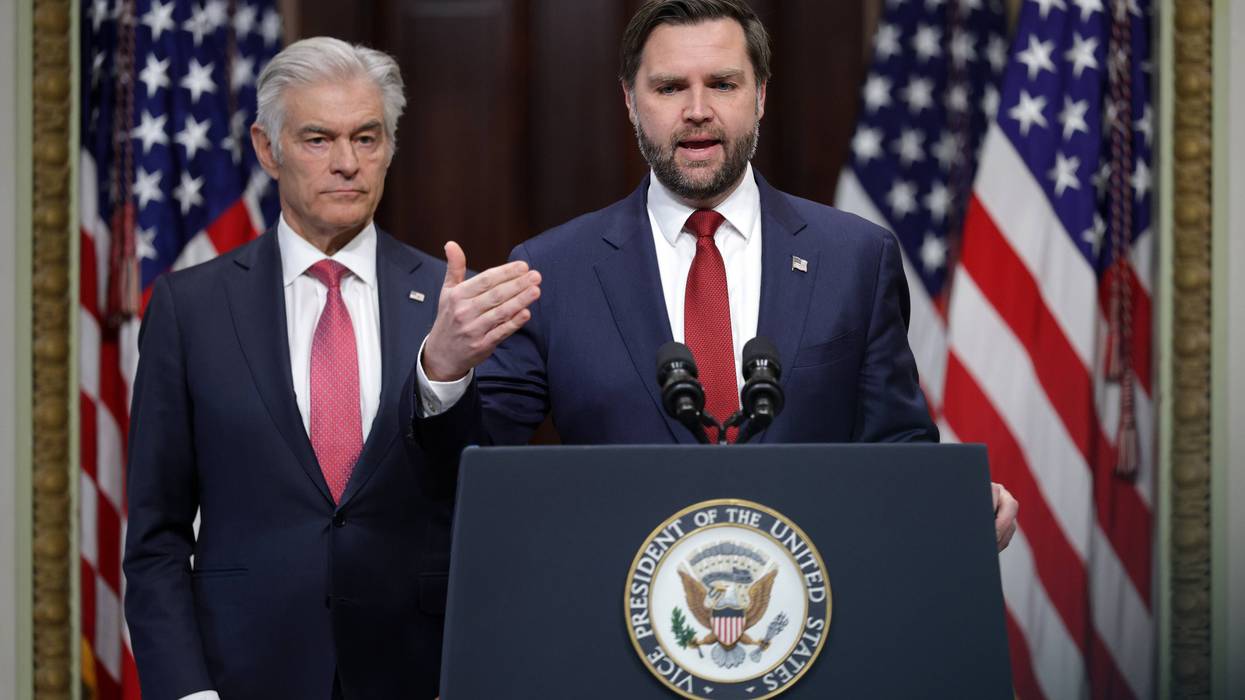April, 26 2016, 07:45pm EDT

For Immediate Release
Contact:
Rebecca Bowe, Earthjustice, (415) 217-2093
Steve Parker, Endangered Wolf Center, (636) 938-5900
Collette Adkins, Center for Biological Diversity, (651) 955-3821
Maggie Howell, Wolf Conservation Center, (914) 763-2373
Catalina Tresky, Defenders of Wildlife, (202) 772-0253
Court Settlement Provides Hope for Mexican Gray Wolves
Victory: Forty years after Endangered Species Act protection, government required to prepare recovery plan
TUSCON, AZ
A coalition of wolf conservation groups, environmental organizations and a retired federal wolf biologist today announced a court settlement requiring the U.S. Fish and Wildlife Service (the Service) to prepare a long-delayed recovery plan for Mexican gray wolves by November 2017.

There is a single wild Mexican gray wolf population in the mountains of central Arizona and New Mexico. The wolves were once found throughout the southwestern U.S. and in Mexico.
With only 97 individuals existing in the wild at the end of 2015, and fewer than 25 in Mexico, the Mexican gray wolf is one of the most endangered mammals in North America and faces a serious risk of extinction. Thanks to the courts, the Service is finally required to meet its legal obligation of completing a legally-sufficient recovery plan, with the ultimate goal of a healthy, sustainable population of Mexican gray wolves in the wild.
"The settlement announced today provides hope that the lobo can be a living, breathing part of the southwestern landscape instead of just a long-lost frontier legend," said Tim Preso, Earthjustice attorney. "But to realize that hope, federal officials must take up the challenge of developing a legitimate, science-based recovery plan for the Mexican wolf rather than yielding to political pressure."
Earthjustice filed a lawsuit in November 2014 to challenge the U.S. Fish and Wildlife Service's multi-decade delay in completing a recovery plan for the Mexican wolf. Earthjustice represents Defenders of Wildlife, the Center for Biological Diversity, retired Fish and Wildlife Service Mexican Wolf Recovery Coordinator David R. Parsons, the Endangered Wolf Center and the Wolf Conservation Center in the case. Today's announcement of a settlement agreement follows a September 2015 ruling by a federal judge in Tucson that rejected the government's effort to dismiss the case.
"Wolves love to follow paths," said former Mexican wolf recovery leader David Parsons. "Now, finally, the path to recovery for the critically endangered lobos of the southwest will be blazed."
"After four decades of delay, a scientific roadmap for recovery of the Mexican gray wolf will finally be reality," said Michael Robinson of the Center for Biological Diversity. "The recovery plan should trigger new releases of captive-bred wolves into the wild and establish new Mexican wolf populations in the Grand Canyon and southern Rocky Mountain ecosystems."
The Service developed a document it labeled a "recovery plan" for the Mexican wolf in 1982--but the Service itself admits that this document was incomplete, intended for only short-term application, and "did not contain objective and measurable recovery criteria for delisting as required by [the Endangered Species Act]." Most importantly, the 34-year-old document did not provide the necessary science-based guidance to move the Mexican gray wolf toward recovery. Without a recovery plan in place, the Service's Mexican gray wolf conservation efforts have been hobbled by insufficient releases of captive wolves into the wild population, excessive removals of wolves from the wild, and arbitrary geographic restrictions on wolf occupancy of promising recovery habitat. The Service in 2010 admitted that the wild Mexican gray wolf population "is not thriving" and remains "at risk of failure," and further admitted that "failure to develop an up-to-date recovery plan results in inadequate guidance for the reintroduction and recovery effort."
"We are racing extinction on the Mexican gray wolf," said Eva Sargent, senior Southwest representative for Defenders of Wildlife. "The best available science, not political pressure, should lead the recovery planning for the Mexican gray wolf. We need more wolves and less politics."
The plaintiffs joining today's settlement agreement include two environmental education organizations that operate captive-breeding facilities that have supported recovery efforts by providing Mexican gray wolves for release into the wild. Despite their efforts, Mexican gray wolf survival continues to be threatened by the lack of a recovery plan to ensure that wolf releases are sufficient to establish a viable population.
"Failing to plan is planning to fail," said Maggie Howell, executive director of the Wolf Conservation Center in New York. "And for these iconic and imperiled wolves, failure means extinction. This settlement represents a necessary and long overdue step toward recovering America's most endangered gray wolf and preventing an irrevocable loss from happening on our watch."
"Education is a key component to the recovery of a species, especially for an animal that has been historically misunderstood and misrepresented. Equally important is an active, up-to-date recovery plan for the species in the wild," said Virginia Busch, executive director of the Endangered Wolf Center in St. Louis, Mo. "The genetic variability that organizations like the Endangered Wolf Center hold with the Mexican wolf population is hugely valuable for releases and cross-fostering opportunities in the wild. We are pleased to hear that the Service will be taking an active role in developing a recovery plan in a timely manner."
REPORTER RESOURCES:
- Background on Mexican gray wolves and photos for media use
- Read the settlement document
- Read this news release in Spanish
BACKGROUND:
The Mexican gray wolf (Canis lupus baileyi)--the "lobo" of southwestern lore--is the most genetically distinct lineage of wolves in the Western Hemisphere, and one of the most endangered mammals in North America. By the mid-1980s, hunting, trapping, and poisoning caused the extinction of lobos in the wild, with only a handful remaining in captivity. In 1998 the wolves were reintroduced into the wild as part of a federal reintroduction program under the Endangered Species Act. Today in the U.S., there is a single wild population in the Blue Range area of Arizona and New Mexico comprising only 97 individuals, all descendants of just seven wild founders of a captive breeding program. These wolves are threatened by illegal killings, legal removals due to conflicts with livestock, and a lack of genetic diversity. Within the past year alone, escalating mortalities and illegal killing, along with reduced pup survival, reduced the wild population from 110 to 97 individuals.
The Service has never written or implemented a legally sufficient Mexican gray wolf recovery plan. Its most recent recovery team has done extensive, rigorous work to determine what needs to be done to save the Mexican gray wolf. Recovery team scientists agreed that, in order to survive, lobos require the establishment of at least three linked populations. Habitat capable of supporting the two additional populations exists in the Grand Canyon ecoregion and in northern New Mexico and southern Colorado. The recovery team drafted a plan in 2012 that called for establishing three interconnected Mexican gray wolf populations totaling at least 750 animals in these areas, but the plan has never been finalized.
The settlement today requires the Service to complete a valid recovery plan by November 2017 and requires peer review of the recovery plan to ensure its scientific integrity. The settlement has been presented to the federal judge overseeing the case, who must approve it before the settlement becomes binding on the parties.
Earthjustice is a non-profit public interest law firm dedicated to protecting the magnificent places, natural resources, and wildlife of this earth, and to defending the right of all people to a healthy environment. We bring about far-reaching change by enforcing and strengthening environmental laws on behalf of hundreds of organizations, coalitions and communities.
800-584-6460LATEST NEWS
Florida Republicans Ripped for Advancing Show-Me-Your-Papers Voter ID Bill
"This wave of anti-voter legislation is advancing amid ongoing abuses of power that pose unprecedented threats to American democracy," said the ACLU of Florida's executive director.
Feb 25, 2026
With 251 days until the US general election, Florida Republicans on Wednesday passed a show-me-your-papers bill that opponents warn could prevent thousands of eligible state voters from registering if they don't have a valid birth certificate or passport, or their documents don't reflect a name change.
"Midterm elections are coming later this year—and they're a crucial test of our democracy," ACLU of Florida executive director Bacardi Jackson said in a Wednesday statement. "Moments like this bring new voters into the process and give communities the power to hold leaders accountable—exactly what a healthy democracy demands. But right now, some lawmakers are pushing an anti-voter bill that could shut thousands of eligible people out of our elections and discourage the enrollment of new eligible voters."
The Florida House of Representatives on Wednesday voted 83-31 on HB 991, sponsored by Rep. Jenna Persons-Mulicka (R-78).
"The Florida House version of the bill would only go into effect in January 2027. But under a similar bill set for consideration in the Florida Senate, the new rules would take effect this July, before the November midterm elections," Democracy Docket detailed. "A House committee already gave preliminary approval to the bill earlier this month."
Jackson highlighted that "many eligible voters don't have ready access to an unexpired passport or an original or certified copy of their birth certificate because of logistical and financial barriers. More than 8 million Floridians do not have a valid passport, and because many women legally change their name upon marriage, more than 4.7 million women in Florida do not have a birth certificate reflecting their current legal name—documents this bill would require."
"At the same time, this proposal would eliminate current, valid forms of ID proving eligibility at the polls, including student IDs, retirement center IDs, and public assistance IDs," she warned. "Taken together, these changes are not neutral or harmless—they would fall hardest on low-income voters, students, seniors, women, and Black and brown Floridians."
The ACLU leader also argued that "context matters. This wave of anti-voter legislation is advancing amid ongoing abuses of power that pose unprecedented threats to American democracy." She specifically pointed to the Safeguard American Voter Eligibility (SAVE) America Act that the GOP-controlled US House of Representatives passed earlier this month.
"We're seeing parallel efforts nationally to make it harder for eligible voters to cast their ballots—including the SAVE Act being debated in Congress right now—and Florida is leading the way down this authoritarian path," she said. The federal bill is less likely to get through the US Senate, whose filibuster rule requires the GOP to get some Democratic support to advance most legislation.
"What makes this even more galling is that lawmakers don't have to do any of this at all—they are choosing to," said Jackson. "They could enact reforms making it easier for eligible Floridians to vote and have their voices be heard, like the Harry T. and Harriette V. Moore Florida Voting Rights Act, HB 1419/SB 1598. Instead, they are fast-tracking legislation that would make voting harder for eligible Floridians and silence communities that deserve to be heard."
"We will not stand by while politicians in power seek to entrench their power at the expense of the people's rights," she vowed. "We will keep organizing and fighting to reclaim and defend our democracy—because every eligible Floridian deserves to vote."
Meanwhile, at the federal level, Senate Majority Leader John Thune (R-SD) plans to hold a vote on the SAVE America Act this week. President Donald Trump used his State of the Union address on Tuesday night to increase pressure on Congress to send the bill to his desk.
"I'm asking you to approve the SAVE America Act to stop illegal aliens and others who are unpermitted persons from voting in our sacred American elections—that cheating is rampant in our elections," Trump said. "It's very simple: All voters must show voter ID. All voters must show proof of citizenship in order to vote. And no more crooked mail-in ballots except for illness, disability, military, or travel. None."
Experts have long countered such GOP claims by emphasizing that, as the Brennan Center for Justice put it in a pair of blog posts, "noncitizen voting is already illegal" and "extensive research reveals that fraud is very rare."
Michelle Kanter Cohen, policy director and senior counsel for the national voting rights group Fair Elections Center, told Democracy Docket on Wednesday that Florida's voter suppression bill "would do a lot of the same things," as the SAVE America Act, "in terms of preventing American citizens from voting who don't have access to documentary proof of citizenship documents."
"The last thing someone who is on a path to citizenship would want to do is to jeopardize their naturalization by voting illegally," Kanter Cohen said. "And so people don't do that. That's not something that's happening because it has such dire consequences."
Keep ReadingShow Less
'Despicable': Vance, Oz Announce Freeze on Some Medicaid Funding for Minnesota
"The Constitution clearly gives Congress the power to spend taxpayer funds, and no law allows the president to halt if he feels some US states aren’t being 'good stewards' of the money," said one critic.
Feb 25, 2026
US Vice President JD Vance said Wednesday that the Trump administration will pause some Medicaid funding for Minnesota over fraud concerns—without offering any guarantees that the suspension will not adversely impact the more than 1 million Minnesotans who depend upon the key healthcare program.
"We're announcing today that we have decided to temporarily halt certain amounts of Medicaid funding that is going to the state of Minnesota in order to ensure that the state of Minnesota takes its obligations seriously to be good stewards of the American people's tax money," Vance said at a White House press conference with Centers for Medicare and Medicaid Services (CMS) Administrator Mehmet Oz.
"Now what is this gonna mean?" Vance continued. "What this means is that, first of all, the providers on the ground in Minnesota have actually already been paid... What we're doing is we are stopping the federal payments that will go to the state government until the state government takes it obligations seriously to stop the fraud that's being perpetrated."
They already targeted SNAP in Minnesota. They’ve killed two Minnesotans and injured or kidnapped hundreds more. Now they’re stealing their Medicaid. They’re going to deny people healthcare because of a YouTube video about a Somali daycare scam that wasn’t even true.
[image or embed]
— Kelly (@broadwaybabyto.bsky.social) February 25, 2026 at 3:05 PM
Oz demanded that Democratic Minnesota Gov. Tim Walz determine "who these providers are; make sure they're not already in trouble for doing bad stuff, and then reevaluate all the current providers to make sure they're supposed to be able to provide these services."
Responding to Oz's remarks, Gaia Leadership Project founder Elizabeth Cronise McLaughlin said on Bluesky, "So Minnesota is supposed to review every appointment by a Medicaid recipient with every doctor to get funds already lawfully allocated to the state?"
Asked by a reporter how he intends to ensure that the funding pause "doesn't impact the people who are enrolled in Medicaid," Vance said he is "worried about the justice of it all."
"I think it's offensive that American taxpayers pay into these programs and they're defrauded... and it's really sad that American children who need these services are unable to get them, because they're going to fraudsters," Vance replied.
"Look, we're certainly gonna make sure that our anti-fraud efforts go after the fraudsters and not after anybody who actually benefits from these services," he continued. "But I actually think the question is a little off, in a way, because the problem is not going after the fraud, the problem is that these programs are being defrauded to begin with."
"Our social safety net will disappear unless we take fraud more seriously," added the vice president, whose boss, President Donald Trump, last year signed into law the biggest cuts to Medicaid and the Supplemental Nutrition Assistance Program, or SNAP, in the nation's history as part of the One Big Beautiful Bill Act.
Medicaid is the primary healthcare safety net for lower-income Americans, with nearly 70 million people enrolled nationwide at the end of last year.
While federal prosecutors are investigating Minnesota’s Medicaid system—specifically, 14 high-risk service programs such as housing support and personal-care services—on suspicion of billions of dollars in fraudulent billings since 2018, and dozens of people have been convicted of stealing public money through the state’s social services system, critics noted that Congress, not the president, has the power of the purse.
Some observers noted that Trump has already targeted Minnesota—which voted against him all three times he ran for president—with his deadly crackdown on undocumented immigrants and their defenders and racist attacks on Somali immigrants, including Congresswoman Ilhan Omar (D-Minn.).
The Medicaid freeze follows the Trump administration's $10 billion cut in federal childcare funding to five Democrat-led states, including Minnesota, last month—a move that opponents argue punishes working families who committed no fraud.
University of Illinois professor Nicholas Grossman called the Medicaid pause "taxation without representation."
"The Constitution clearly gives Congress the power to spend taxpayer funds, and no law allows the president to halt if he feels some US states aren’t being 'good stewards' of the money," he said on Bluesky. "In case there’s any confusion on this, the Impoundment Control Act forbids it."
"The people of Minnesota vote for representatives to Congress," Grossman added. "Minnesota representatives and senators were in DC, representing their constituents, when Congress passed laws using proper procedure that allocated Medicaid funding. The president breaking those laws violates the fundamental compact of the republic."
Oz on Wednesday also announced "a six-month national moratorium blocking all new enrollments for durable medical equipment—prosthesis, orthotics—supplies across the board" in the name of fighting fraud. The move targets suppliers, not individual Medicaid beneficiaries.
This from Oz, a promoter of privatized Medicare Advantage programs, which are notorious for overcharging taxpayers and denying patients necessary care. The CMS under Oz increased federal funding for Medicare Advantage plans by more than $25 billion for 2026.
As Common Dreams recently reported, United Health Group (UHG), one of the country's largest for-profit health insurance companies, has been the leading beneficiary of a long-running Medicare Advantage fraud scheme that the Medicare Payment Advisory Commission—an independent, nonpartisan legislative branch agency—warned could cost US taxpayers $1.2 trillion over the next decade.
Some critics said that if Trump really cared about fraud, he'd go after companies like UHG—and stop pardoning so many convicted criminals who committed billions of dollars worth of fraud.
"These guys are despicable," Michigan State University professor Brendan Cantwell said Wednesday in response to Vance and Oz's announcement.
Robert Weissman, co-president of the consumer advocacy group Public Citizen, said in a statement Wednesday that “Medicaid fraud is a serious problem that requires cracking down on fraudsters—not patients."
Weissman continued:
This administration’s anti-fraud rhetoric is itself a fraud. In fact, the administration has gutted anti-fraud government agencies and programs and let fraudsters off the hook. It has issued record-breaking pardons to fraudsters; sought to eliminate the most important anti-consumer fraud agency, the Consumer Financial Protection Bureau; eviscerated the corps of inspectors general whose job is to root out waste, fraud, and abuses; and dropped dozens of fraud and fraud-related investigations against large corporations.
“The Trump administration suspension of Medicaid funding in Minnesota is a bad-faith, punitive, and shameful measure that will punish people in Minnesota as part of the same deceptive story that the Trump administration has told to justify the outrageous [Immigration and Customs Enforcement] invasion of the state," Weissman added.
Keep ReadingShow Less
Former Brazilian Political Officials Found Guilty of Plotting Murder of Marielle Franco
"What the killers did not expect is that her legacy would become greater than all of this," said Brazilian Supreme Court Justice Carmen Lúcia.
Feb 25, 2026
A five-judge panel on Brazil's Supreme Court on Wednesday voted unanimously to convict former Congressman Chiquinho Brazão and his brother, politician Domingos Brazão, of ordering the 2018 murder of Rio de Janeiro City Councilwoman Marielle Franco and her driver, Anderson Gomes.
As reported by Reuters, the court sentenced the Brazão brothers to each serve 76 years in prison for plotting to assassinate the 38-year-old Franco because they feared she and her allies in the Socialism and Liberty Party would be an impediment to their illegal scheme that involved taking public lands to develop private real estate projects.
Justice Alexandre de Moraes, who oversaw the trial of the brothers, said that the two men did not think they would be held accountable for killing Franco because she was a Black woman who represented a poor neighborhood in Rio.
"Inside the misogynistic, prejudiced minds of those who ordered and carried out the crime, who would care about that?" Moraes said. “They did not expect such wide repercussions."
Justice Carmen Lúcia also said that the Brazão brothers seemed to believe that they would be allowed to get away with murder.
"What the killers did not expect," said Lúcia, "is that her legacy would become greater than all of this."
The court also sentenced former Rio de Janeiro Police Chief Rivaldo Barbosa to an 18-year prison sentence for obstructing the investigation into Franco's murder.
Franco's widow, current Rio City Councilwoman Mônica Benício, told Payday Report that the court's conviction of the plotters was a landmark decision for Brazilian democracy.
"For the country, this is an opportunity to demonstrate its capacity to break with the selective penal system that protects criminal structures and their political ties," Benício said. "We must learn a lesson from what the assassination of Marielle and Anderson reveals about Brazil: the obscure connections between crime, politics, and the police."
Anielle Franco, a sister of Marielle Franco who currently serves as Brazil's Minister of Racial Equality, hailed the verdict as "justice" in a social media post, vowing that "our fight continues for all victims of violence."
Agnes Callamard, secretary general of Amnesty International, said that justice for Franco and Gomes was "a long time coming," and added that "their killings are emblematic of the broader and highly alarming trend of lethal violence and structural racism against human rights defenders in Brazil."
Keep ReadingShow Less
Most Popular


